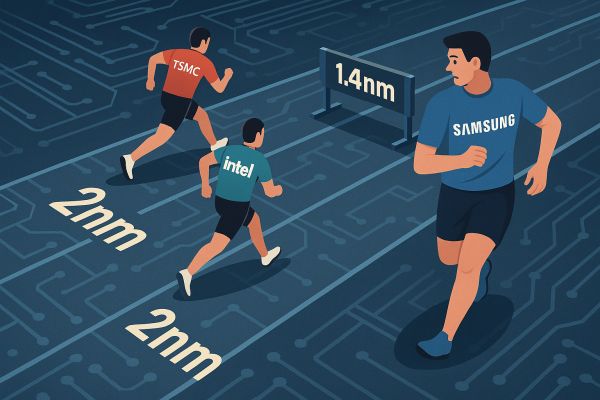
2025. July 02.
Why is Samsung stopping production of 1.4nm chips – and what does this mean for future phones?
Samsung's latest announcements about delays in 1.4 nanometer chip production foreshadow worrying consequences. Although this may seem like a minor engineering detail at first glance, the decision could have serious implications for the mobile industry as a whole and for Samsung's own chip manufacturing strategy. It is worth understanding what this actually means and why the manufacturing technology used for future Exynos chips matters.
2025. July 01.
New direction at Apple: the next, cheaper MacBook may feature an iPhone chip
Apple is working on a product that may not seem revolutionary at first glance, but could bring about a noticeable change in the company's strategy. They are planning to introduce a new, lower-priced MacBook that will not be based on the usual M-series processors, but on the A18 Pro chip used in iPhones. This small but significant technological decision is not only aimed at reducing manufacturing costs, but could also open up new customer segments for Apple, particularly in the education sector and among users with basic needs.
2025. June 30.
Samsung is changing: this is what the Galaxy Z Fold7 will look like, which we haven't seen yet
One of the most exciting areas of the mobile phone market is the development of foldable devices, where technological innovations and user feedback create a particularly sharp collision zone. Ahead of Samsung's Galaxy Unpacked event on July 9, there is already significant interest in the Galaxy Z Fold7, which could be a milestone in many ways – but not all aspects of it have been met with unanimous enthusiasm.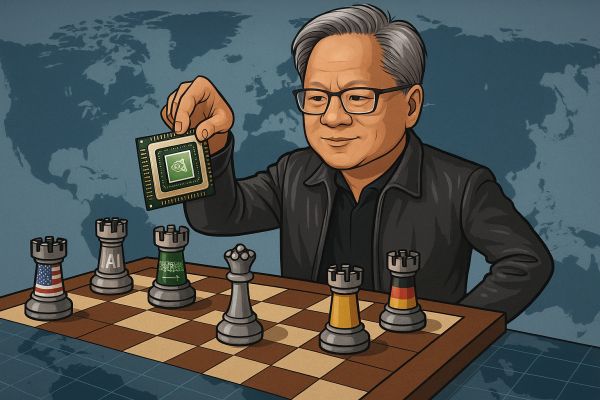
2025. June 30.
Sovereign AI, secret share sales – what is going on behind the scenes at NVIDIA?
The artificial intelligence industry has experienced unprecedented momentum in recent years, and one of the biggest winners of this wave is undoubtedly NVIDIA. Known for its graphics processors, the company is now not only a favorite among gamers and engineers, but has also become a central player in international technology strategies. Its shares are hitting historic highs on the US stock market, while more and more government cooperation and geopolitical threads are beginning to weave around it. But what does all this tell us about the future, and how well-founded is the current optimism?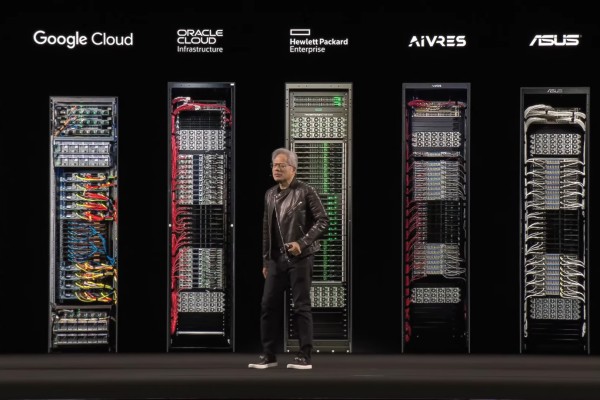
2025. June 27.
Will ASICs replace NVIDIA GPUs?
The development of artificial intelligence over the past decade has been closely linked to the name NVIDIA, which has become the dominant player in the market with its graphics processing units (GPUs). A significant portion of today's AI models are built on these GPUs, and NVIDIA's decade-old software ecosystem—especially the CUDA platform—has become an indispensable tool for research, development, and industrial applications. At the same time, in recent years, the biggest players in the technology sector – including Google, Amazon, Meta, and Microsoft – have been turning with increasing momentum toward AI chips developed in-house and optimized for specific tasks, known as ASICs.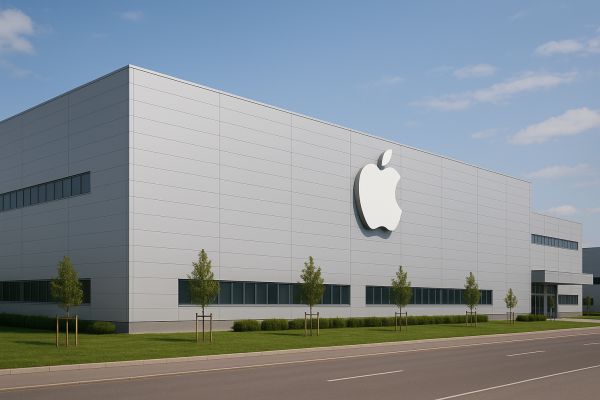
2025. June 26.
Apple joins China's subsidy programme: market protection with discounts
Apple has officially joined the Chinese government's consumer electronics subsidy programme to boost domestic consumption, reports the South China Morning Post. The move can be seen as both a market adaptation and a strategic attempt by the US technology giant to strengthen its position in an increasingly competitive environment. Under the programme, shoppers in the Chinese cities of Beijing and Shanghai can now get direct discounts on certain Apple products.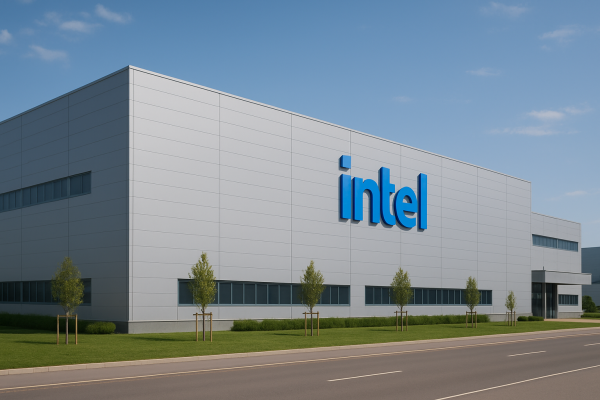
2025. June 26.
Intel's new 18A chip manufacturing process: moderate progress or a turning point in the global semiconductor industry?
Intel recently published a detailed technical analysis of its latest manufacturing technology, known as 18A, which the company says represents a significant advance in performance, power consumption, and transistor density. Based on the material presented at the VLSI 2025 symposium, the new manufacturing node promises up to 25% faster speed, 36% lower power consumption, and approximately 30% higher transistor density compared to the previous Intel 3 process. While these figures are impressive in themselves, the significance of the process lies primarily in the fact that this is the first time in years that Intel can offer a truly competitive alternative to the world's leading chip manufacturer, Taiwan's TSMC.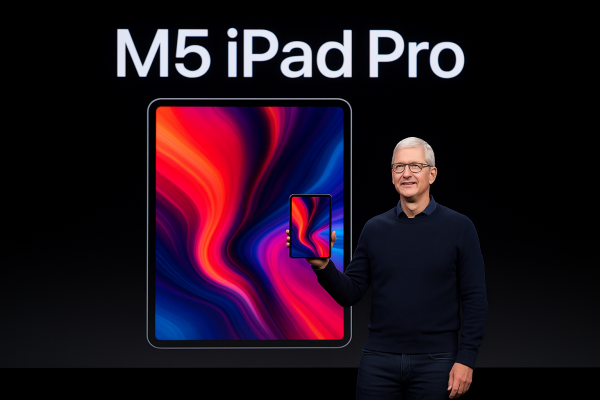
2025. June 25.
The new M5 iPad Pro is coming: what can we expect from Apple's next tablet?
Apple's product announcements always receive significant attention, especially when it comes to a flagship device like the iPad Pro. Although there has been no official confirmation yet, industry players and analysts expect the new iPad Pro with the M5 chip to be released in late 2025 or early 2026 at the latest. Signs indicate that Apple is sticking to the 18-month update cycle it uses for iPad Pro models.
2025. June 24.
Samsung Galaxy A56 5G from the customer's perspective
The Samsung Galaxy A56 5G was released in early 2025 as the company's mid-range flagship. Based on professional tests and customer feedback, we will now examine how it meets user expectations, with a particular focus on quality, performance, camera, and software updates.
2025. June 23.
Artificial intelligence, space, and humanity
Elon Musk, founder and CEO of SpaceX, Tesla, Neuralink, and xAI, shared his thoughts on the possible directions of the future in a recent interview, with a particular focus on artificial intelligence, space exploration, and the evolution of humanity.
2025. June 23.
Answers while You train, Meta and Oakley's new AI smart glasses are here
Meta's latest product announcement makes it clear: the company firmly believes in the proliferation of wearable technology. Created in collaboration with Oakley, Oakley Meta HSTN smart glasses are aimed at users with an active lifestyle and offer features that combine everyday usability with the possibilities of artificial intelligence.
2025. June 21.
The new AI chip that is revolutionizing medicine and telecommunications makes decisions in nanoseconds
As more and more devices connect to the internet and demand grows for instant, high-bandwidth applications such as cloud-based gaming, video calls, and smart homes, the efficient operation of wireless networks is becoming an increasingly serious challenge. The problem is further exacerbated by the fact that the wireless spectrum—the available frequency band—is limited. In their search for a solution, engineers are increasingly turning to artificial intelligence, but current systems are often slow and energy-intensive. A new development that brings data transmission and processing up to the speed of light could change this situation.
2025. June 20.
Trump Mobile T1: The Chinese are already in Trump Tower
In June 2025, the Trump family announced a new mobile communications brand called Trump Mobile, whose flagship product is a smartphone called the T1. The device and its accompanying mobile package were unveiled at Trump Tower, timed to coincide with the 10th anniversary of the former president's first presidential campaign. The goal of the project, at least on a communications level, is to encourage American manufacturing and job creation, as well as to boost the domestic technology sector.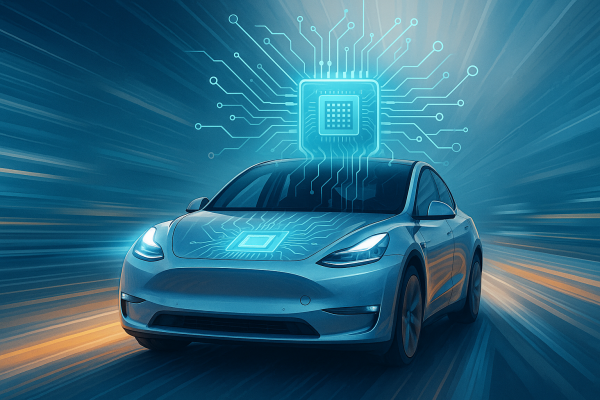
2025. June 19.
Tesla's new FSD chip delivers five times more computing power
Tesla's next-generation FSD (Full Self-Driving) chip, the AI5/HW5, represents a significant step forward in the development of the company's self-driving technology. Although the previous model, known as HW4, already offered powerful performance on its own, the new chip's 2000-2500 TOPS (tera operations per second) computing power effectively sets a new standard for in-vehicle artificial intelligence applications. This fivefold increase is not just a technical feat, but also allows the system to work with more complex, finely tuned algorithms that require less human intervention – algorithms that bring us closer to the possibility of completely unsupervised driving.
2025. June 19.
Samsung Galaxy A26 5G from the customer's perspective
The Samsung Galaxy A series has long been a reliable choice for budget-conscious Android users, consistently delivering on essential features without chasing cutting-edge trends. The new Samsung Galaxy A26 5G continues this tradition, playing it safe yet effectively delivering where it counts. This article will combine insights from a professional review of the A26 5G with aggregated customer feedback to provide a holistic view of the device's performance and user perception.
2025. June 18.
New magnetic phenomenon observed – breakthrough in future data storage
A US research team led by the Massachusetts Institute of Technology (MIT) has identified a new magnetic state that previously existed only in theory and could have a significant impact on future computer data storage devices. The new phenomenon has been named p-wave magnetism, and they were the first to demonstrate it under laboratory conditions.
2025. June 18.
Production cuts at Intel: More than 10,000 employees may be affected by wave of factory closures
News of the cuts affecting Intel's manufacturing division first came to light last week, but the details were not yet known at that time. However, according to the latest reports, the situation is more serious than previously thought: one of the world's largest chip manufacturers is planning a 15-20% reduction in headcount in the Intel Foundry (foundry manufacturing) division. This could affect more than 10,000 factory workers worldwide, according to OregonLive.
2025. June 17.
China launches human trials of brain-computer interface
China has launched the first human clinical trials of a brain-computer interface that directly connects to the brain. This so-called invasive technology, which allows thought control through a device implanted in the brain, has so far been mainly limited to research laboratories. Now, for the first time, it is being tested on humans in China, using a device developed by the Centre of Excellence for Brain Sciences and Intelligent Technologies in Shanghai.Linux distributions
Linux distribution updates released in the last few days
-

Parrot
6.42025. July 02.
-

TUXEDO OS
202507022025. July 02.
-

deepin
25.0.12025. July 02.
-

ALT Linux
11.0 "Education"2025. July 01.
-

Arch Linux
2025.07.012025. July 01.
-

Berry Linux
1.422025. July 01.
-

Bluestar Linux
6.15.42025. July 01.
-

Dr.Parted Live
25.072025. July 01.
-

ExTiX
25.72025. July 01.
-

Expirion Linux
6.0-2507012025. July 01.
-

Gentoo Linux
202506292025. July 01.
-

blendOS
5a62dd592025. July 01.
-

CentOS
10-202506302025. June 30.
-

PLD Linux Distribution
20250630 "New Rescue"2025. June 30.
-

4MLinux
48.12025. June 29.
-

openmamba GNU/Linux
202506282025. June 28.
Popular
-
2025. June 12.
-
2025. June 10.